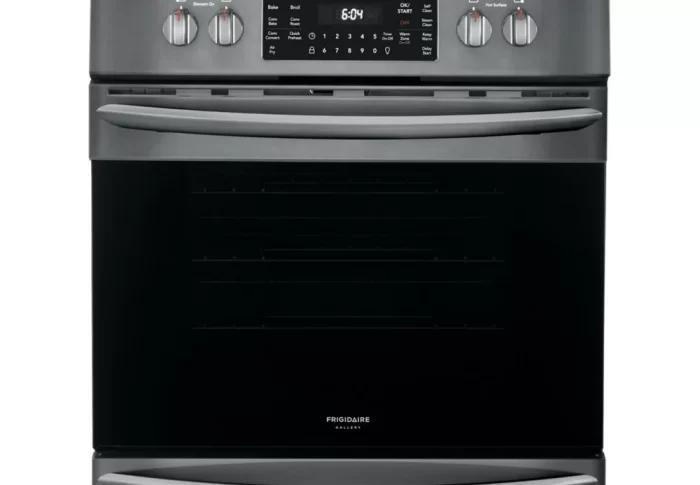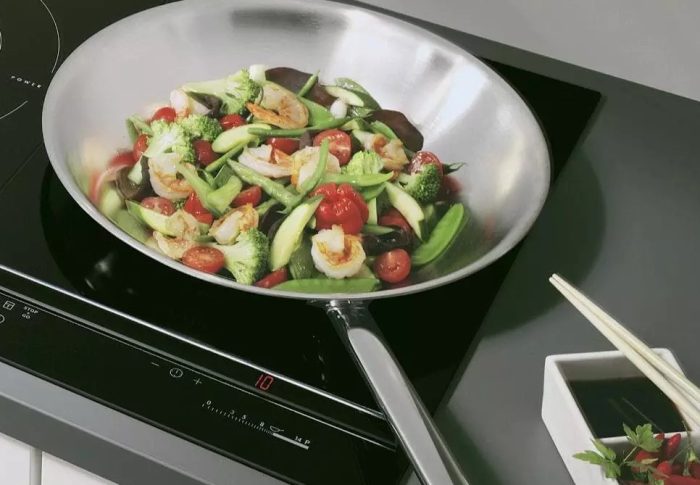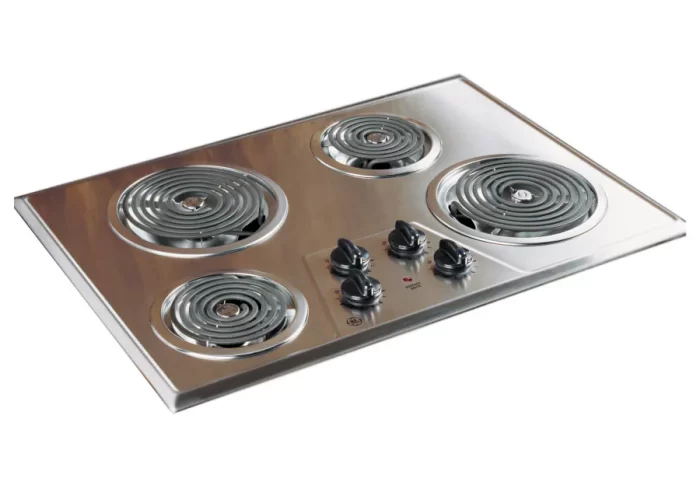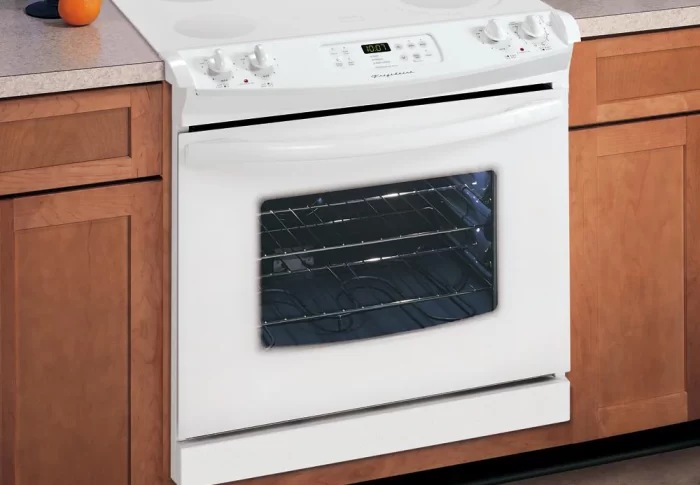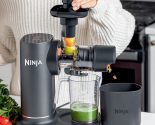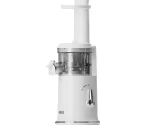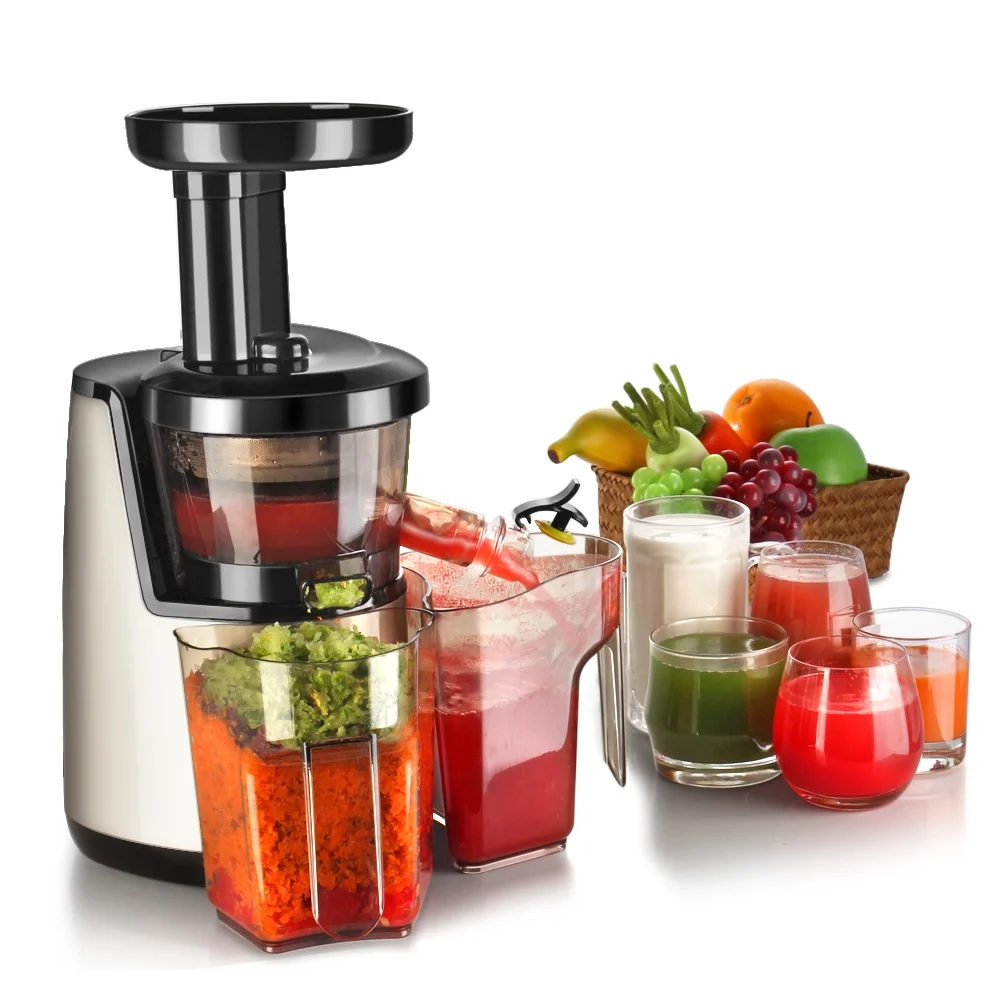
Juicing Wars: Difference Between Cold Press And Juicer
Introduction to difference between cold press and juicer
Today’s health-focused individuals are actively seeking ways to infuse their diets with nutrient-rich beverages. Juicing technology has advanced, providing two main methods for extracting juice: cold press and traditional (centrifugal) juicers. Each method has distinct features and outcomes, influencing the juice’s quality and nutritional value.
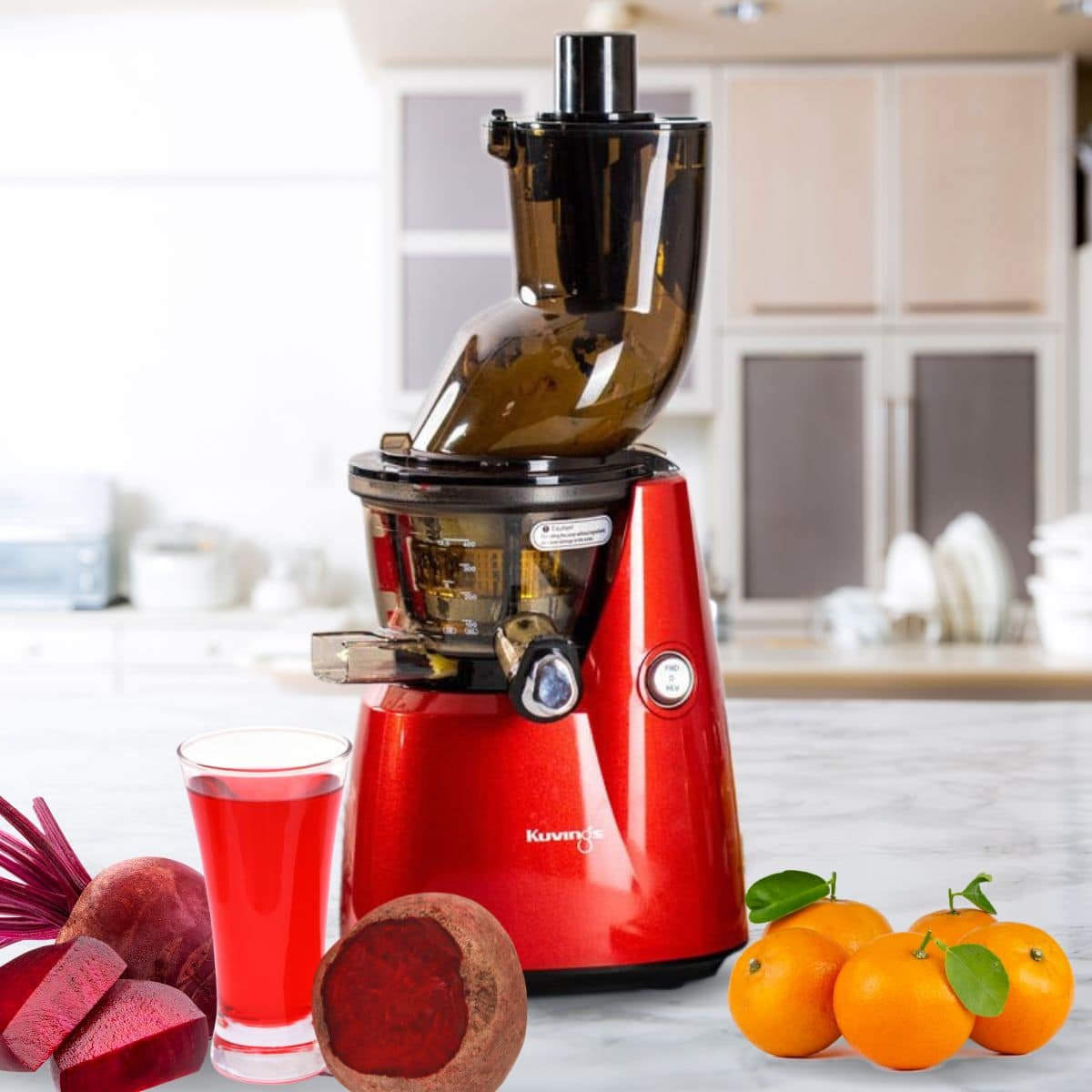
Key Differences Between Cold Press and Traditional Juicers
Cold press juicers slowly crush and press fruits and vegetables, minimizing heat and oxidation. Traditional juicers, on the other hand, use fast-spinning blades that generate more heat and may lead to a quicker nutrient loss. A cold press machine typically yields a juice that is richer in enzymes and vitamins whereas a traditional device offers speed and convenience at a potentially lower nutritional value.
Health Implications of the Juicing Process
The juicing process impacts the healthfulness of the juice. Cold press juicers produce juice with more antioxidants and a better-preserved vitamin content due to reduced heat exposure. Traditional centrifugal juicers may provide a quicker juice option but might compromise some nutritional aspects. Therefore, selecting the right juicer aligns with personal health goals, such as maximizing nutrient intake or fitting juice into a busy lifestyle.
Understanding Cold Press Juicers
Cold press juicers operate using a slow masticating process. They use a hydraulic press or similar mechanism to crush and press produce, thus extracting juice. This gentle procedure minimizes heat buildup and oxidation, which conserves nutrients.
How Cold Press Juicers Work
These juicers work by slowly crushing fruits and vegetables against a perforated screen. As the produce is compressed, juice is extracted and separated from the pulp without introducing significant heat. This process takes longer than centrifugal juicing but preserves more nutrients.
Advantages of Using Cold Press Juicers
One major benefit of using cold press juicers is the superior nutritional content of the juice. They extract more juice from less produce, reducing waste. The juicers operate quietly and can handle leafy greens and fibrous vegetables effectively. They also produce juice with less oxidation, leading to longer shelf life.
Potential Drawbacks and Considerations
However, cold press juicers come with certain drawbacks. They tend to be pricier than traditional juicers and require more prep time for the produce. Cleaning can be more involved, as the components are specialized. They also take up more space due to their slower operation and typically larger size.
Exploring Traditional Juicers
Traditional juicers, also known as centrifugal juicers, are a popular choice for many. They offer quick juicing times and are often more budget-friendly when compared to cold press models.
Functionality of Traditional Juicers
These juicers use rapidly spinning blades to cut produce into tiny pieces. As the blades spin, they generate centrifugal force. This force separates juice from pulp inside a mesh chamber. The juice flows out into a container, leaving the pulp behind. Traditional juicers are fast and convenient, making them a go-to option for quick juice preparation.
Benefits of Centrifugal Juicing
The main advantage of centrifugal juicers is their speed. They can produce juice in seconds. This is ideal for those with busy lifestyles who want fresh juice without a long wait. They are also typically easier to use and clean. Plus, they often have wider feeding chutes. This allows for whole fruits and vegetables to be juiced without prior chopping.
Limitations of Traditional Juicing Methods
However, there are some drawbacks to consider with centrifugal juicers. The high-speed process can cause more oxidation. This can lead to a loss in some nutrients. It can also result in a foamy juice with a shorter shelf life. Also, these juicers might not be as efficient at juicing leafy greens or soft fruits. Finally, they tend to be noisier due to the powerful motors they use.
Comparison of Juice Quality
When exploring the comparison between cold press and traditional juicers, the quality of the juice produced is a pivotal factor. This encompasses not only the nutritional content of the juice, but also its shelf life, and the pulp and fiber content that remains after juicing.
Nutritional Content: Cold Press Vs. Centrifugal Juice
Nutrient-rich juice is a promised benefit of cold press juicers. The slow extraction process helps preserve vitamins and enzymes. Centrifugal juicers, due to their fast operation, might not retain as many nutrients.
Key points to consider:
- Cold press juicers produce nutrient-dense juice.
- Traditional juicers may have reduced nutritional output due to heat and oxidation.
Juice Shelf Life and Storage
The longevity of juice is another concern. Cold press juicer enthusiasts praise the longer life of their juices. Centrifugal juicers’ juice should be consumed quickly to enjoy its full benefits.
Here are the takeaways:
- Cold press juice can last several days with proper storage.
- Centrifugal juice is best consumed immediately after juicing.
Pulp and Fiber Content Analysis
Pulp and fiber impact the juice’s texture and nutrient content. Cold press juicers often leave more pulp, which can be rich in fiber. Traditional juicers typically produce a clearer juice with less pulp.
To summarize:
- More pulp in cold press juice can mean more fiber.
- Traditional juicing yields less pulp and a smoother juice.
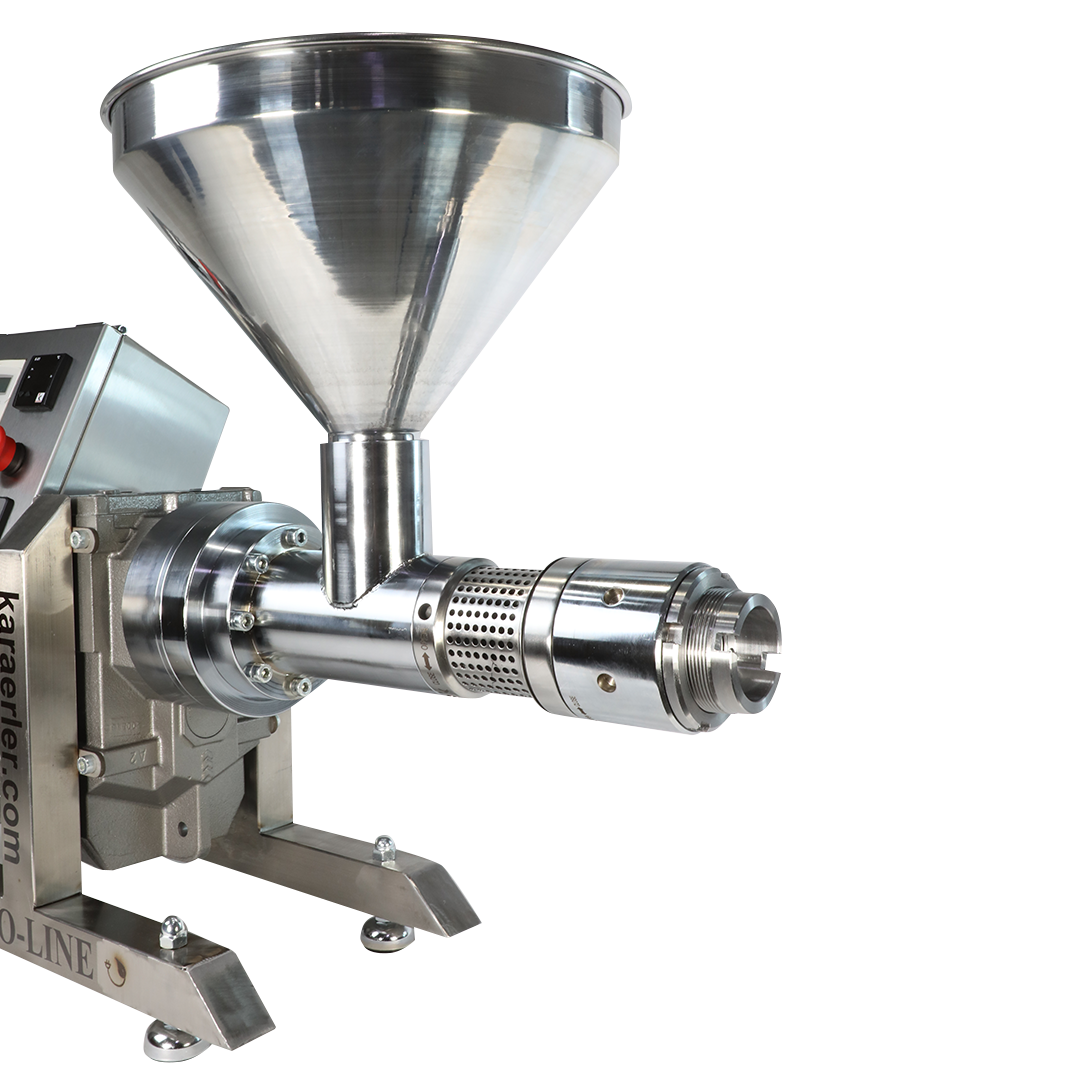 Juicer Features and User Experience
Juicer Features and User Experience
When diving into the world of juicing, user experience is key. This includes setup, cleaning, noise, and cost.
Ease of Use: Setup and Cleaning
Cold press juicers often have more parts and can take longer to assemble. Cleaning them can be detailed, needing more time. In contrast, traditional juicers usually have fewer parts making them easy to put together and faster to clean.
Noise Levels and Operation
A noticeable difference between the two types of juicers is the noise level. Traditional juicers make more noise due to their high-speed blades. Cold press juicers are quieter, making them a better choice for a calm kitchen atmosphere.
Price and Value for Money
Centrifugal juicers generally cost less, offering a budget-friendly choice. Cold press juicers have a higher price tag but can be cost-effective long-term due to higher juice yields and nutrient preservation. Your choice should align with both your budget and your juicing habits.
Making the Choice: Which Juicer Suits Your Lifestyle?
Making a decision on which juicer to purchase can be daunting. It boils down to how you live, what you value, and the types of juices you enjoy. Let’s break it down.
When to Choose a Cold Press Juicer
Choose a cold press juicer if you:
- Value a high nutrient content in your juices.
- Want to juice leafy greens, wheatgrass, or fibrous veggies effectively.
- Don’t mind a slower juicing process for a superior juice quality.
- Prefer juice with more pulp and fiber for health benefits.
- Are okay with a higher upfront cost, keeping in mind long-term savings.
- Like juicing in a quieter environment.
When to Opt for a Traditional Juicer
A traditional centrifugal juicer might be your pick if you:
- Seek fast and convenient juice-making.
- Have a tight budget but want to start juicing.
- Plan to drink juice immediately, not storing it for too long.
- Don’t intend to juice a lot of leafy greens or tough produce.
- Need a machine that’s simple to use and quick to clean.
Your choice should take into account your daily routine, how much time you can dedicate to juicing, and ultimately, how you intend to use the juice. Consider these factors carefully to find the right fit for your juicing journey.
 Conclusion: difference between cold press and juicer
Conclusion: difference between cold press and juicer
Choosing between cold press and traditional juicers is not just about the method. It’s about how the juice fits your lifestyle and health goals.
Final Thoughts on Juicing Options
Both cold press and traditional juicers have their place in the kitchen. Your choice depends on factors like nutritional priorities, time constraints, and budget.
- Cold press juicers work slowly, but they boost nutrient preservation. They are perfect for health-conscious individuals who prioritize quality.
- Traditional juicers deliver juice rapidly, appealing to those with limited time seeking immediate refreshment.
Consider purchase cost, operating convenience, and long-term health benefits when making your decision.
Personal Preference and Health Goals
Your juicing choice should reflect your health objectives and daily routine.
- If maximizing nutrition intake from juice is key, a cold press juicer aligns with this goal.
- For quick, easy-to-make drinks without extensive prep, a traditional juicer may be better.
Remember to weigh personal preferences against practical aspects, like noise and ease of cleaning. Align your juicer choice with your commitment to a healthy, flavorful juice experience.

